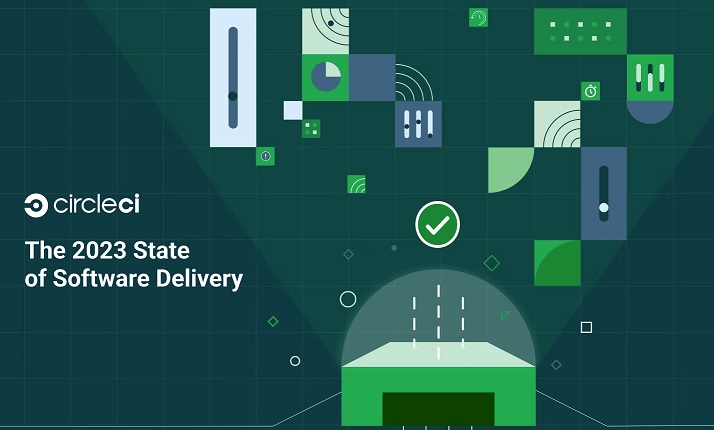JFrog announced a new machine learning (ML) lifecycle integration between JFrog Artifactory and MLflow, an open source software platform originally developed by Databricks.
"Are we a high-performing engineering team?"
This is a question that many organizations ask themselves each year.
In the pursuit of achieving high software delivery performance, companies often rely on engineering metrics to determine how well their teams are performing. does a deep-dive on millions of data points from real development teams, providing a clear picture of what it means to have a high performing software delivery practice.
With big shifts in the tech market this past year, it's become clear that engineering teams have a renewed focus on resilience — they need to go fast but they need to do so responsibly, while quickly responding and adapting to change.
Platform engineering has also become a critical function of successful businesses. Platform teams are tasked with removing impediments to developer velocity as well as setting guardrails and enforcing quality standards across projects. As organizations seek to increase efficiency, reduce risk, and become more responsive to the demands of the market, platform teams will continue to play a critical role in aligning engineering practices with business goals.

Here are a few recommendations, based on CircleCI's latest State of Software Delivery Report, for how teams can achieve elite status through a holistic software delivery practice.
Moving Fast Responsibly
Mean time to recovery (MTTR) measures the average time required to go from a failed build signal to a successful pipeline run. Time to Recovery means your team is focused on getting things out the door. If the build is broken, everyone swarms to get it going again.
Two years into the pandemic, you might expect that engineers were exhausted in 2022 and didn't want to prioritize fast recovery times. But we observed the opposite on our platform — teams were more productive than in previous years.
While the benchmark for achieving elite status is being able to recover or revert in under an hour, our research found that the top 25% of highest performers recovered in 15 minutes or less, and the top 5% of performers recovered in under five minutes. My advice is to prioritize reducing your mean time to recovery if you're not already.
A Renewed Focus on Resilience and Predictability
Customers on our platform are deeply invested in continuous feedback — they're shipping in smaller increments, building the muscle of their delivery teams, and becoming more consistent. Our data reveals that many software teams are achieving short durations, as well as a high percentage of green builds and quick fixes. This signals to us that they're focused on predictable, consistent delivery, which is how organizations stay resilient.
Again, recovering quickly from failure indicates your team's resilience because it means you're able to respond effectively to feedback from your CI system. Equipping developers to recover from broken builds can have a significant impact on your organization's bottom line in terms of both developer productivity and customer satisfaction.
It's Never Too Early to Implement a Platform Engineering Approach
The size of your development team can have a meaningful impact on your engineering performance. Interestingly, our data shows that large engineering organizations are faster and more responsive than their mid-sized counterparts while remaining just as productive. Duration, throughput, and time to recovery all continue to increase until organizations reach about 100 contributors, at which point duration and recovery time begin to fall while throughput remains steady.
When most organizations reach 100 engineers per team, they begin to centralize and consolidate tooling and process decisions for better efficiency and control, often under the guidance of a platform engineering team. Even if you're a smaller team, a platform engineering approach can be critical to your growth. I suggest implementing it early, even if it's just the role of one or two employees.
Platform teams are focused on four areas to maximize their impact: self-service, automation and tooling, security, and reliability. By focusing on these areas, platform engineers can help engineering teams deliver high-quality software that aligns with business goals.
2022 was a year of big ups and big downs for the technology industry but overall software organizations still prioritized delivering quickly. It's clear that teams are continuing to invest in being great at software delivery.
Industry News
Copado announced the general availability of Test Copilot, the AI-powered test creation assistant.
SmartBear has added no-code test automation powered by GenAI to its Zephyr Scale, the solution that delivers scalable, performant test management inside Jira.
Opsera announced that two new patents have been issued for its Unified DevOps Platform, now totaling nine patents issued for the cloud-native DevOps Platform.
mabl announced the addition of mobile application testing to its platform.
Spectro Cloud announced the achievement of a new Amazon Web Services (AWS) Competency designation.
GitLab announced the general availability of GitLab Duo Chat.
SmartBear announced a new version of its API design and documentation tool, SwaggerHub, integrating Stoplight’s API open source tools.
Red Hat announced updates to Red Hat Trusted Software Supply Chain.
Tricentis announced the latest update to the company’s AI offerings with the launch of Tricentis Copilot, a suite of solutions leveraging generative AI to enhance productivity throughout the entire testing lifecycle.
CIQ launched fully supported, upstream stable kernels for Rocky Linux via the CIQ Enterprise Linux Platform, providing enhanced performance, hardware compatibility and security.
Redgate launched an enterprise version of its database monitoring tool, providing a range of new features to address the challenges of scale and complexity faced by larger organizations.
Snyk announced the expansion of its current partnership with Google Cloud to advance secure code generated by Google Cloud’s generative-AI-powered collaborator service, Gemini Code Assist.
Kong announced the commercial availability of Kong Konnect Dedicated Cloud Gateways on Amazon Web Services (AWS).
Pegasystems announced the general availability of Pega Infinity ’24.1™.




